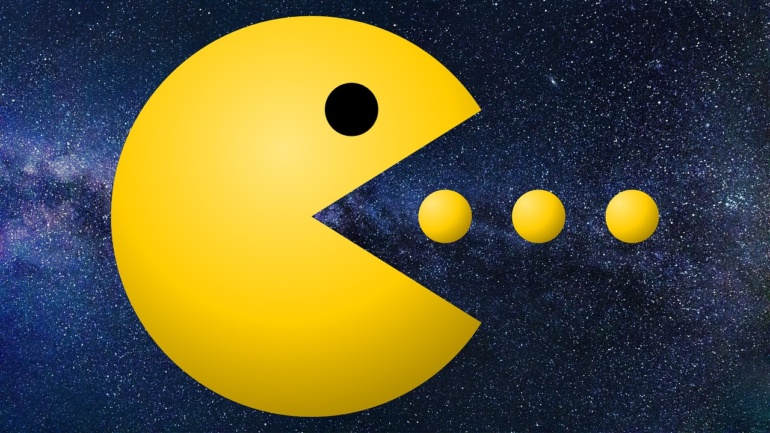Introduction
About five years ago, I noticed that someone was paying about 10 euros a month for Spotify through an Apple account, whereas a monthly Spotify subscription was about 8 euros. My first reaction was: why would someone do that? Why pay 30% more monthly via Apple, if you would not have to pay this extra 30% if you got a subscription directly via Spotify? A possible answer is that the user was not aware of the possibility of getting the app directly via Spotify, instead of via the App Store. Apple prohibited Spotify to inform consumers about the option to get the app directly via Spotify and save at least 2 euros a month (>24 euro per year). The case centers around this practice, Apple’s prohibition to Spotify to inform, which is qualified by the Commission as “imposing unfair trading conditions” cf. Article 102(a) TFEU. Apple was fined €1.8 billion by the Commission.
I address this prohibition briefly below, and also whether asking 30% on top of the price for the download of a paid app is a reasonable charge. The main point I want to address is something that intrigues me ever since I learned about this practice five years ago: If and why the monthly compensation Apple is asking for is fair, or more specifically, a fair business practice.
The text of the decision is not yet available. I was told it could take weeks, months, sometimes even years. What follows are some general thoughts on the case.
Innovation and dominance
Schrepel sees it as a good thing that the Commission mentions innovation. However, I do not see any element of innovation in this case. The aim of competition law (more specifically Article 102 TFEU) is to correct the free market in case of undesirable practices affecting consumer welfare and/or innovation. The targets of competition law are dominant players who abuse their power. In this case, we have the powerful Apple, which makes most of its money from expensive phones, tablets, and computers, and has run an App Store for over 15 years. Then there is the dominant Spotify, which runs the most popular music streaming app in terms of paid subscribers. Over half of Spotify’s subscribers are probably not Apple users, but it is certainly a significant portion. Have the Spotify consumers who purchased the Spotify premium subscription through the Apple Store been harmed?
Convenience of Apple users, and the closed system
Apple users like convenience. They do not mind having less control. Apple uses a closed system. The internet has traditionally been an open network that stimulated innovation because anyone could develop or install software to run on their computers. Ironically, Apple became big because of the openness of the internet, as I learned from Zittrain’s The Future of the Internet. In the late 1980s, sales of Mac computers suddenly increased, because some random amateur created a spreadsheet that could be used on an Apple computer and became very popular. Over the years, Apple changed its policy and no longer allowed software other than what they controlled. So no one could develop software anymore to run on Apple devices without Apple’s cooperation. The book by Zittrain was written just before the iPhone was introduced in 2007, so there were no App Stores yet. App Stores are controlled, but everyone can submit apps they developed to the App Store, and after successful review, they can be distributed. So, to some extent the openness returned. In that way App Stores stimulate innovation. Anyone can sell apps through the App Store as long as they follow the Apple Store (or Google Playstore) guidelines.
Apple’s success, aside from its design, is certainly its ease of use. Apple’s users admire the convenience and efficiency of Apple’s products. It may be that an Apple user does not care to spend an extra 2 euros a month for a Spotify app when everything is running smoothly. Why bother to cancel the subscription via Apple, and subscribe again directly through Spotify?
Apple’s information about the service
In the online environment, providing information is more important than in the offline world. I have argued that there are too many requirements (Lodder 2014, Lodder & Morrais Carvalho 2022, see also More Than You Wanted to Know: The Failure of Mandated Disclosure), but transparency on pricing is essential. To me this would mean Apple shows that people paid, say 8 euros for Spotify and additionally 2.40 euros to Apple (30% of 8) when they install the app. Also, that it is clear that this 2.40 euros has to be paid monthly. However, likely the payment shows just one price, because technically the fee is not charged to the consumer. Based on the monthly Spotify fee, Apple charges Spotify monthly an additional 30% for each user of the Premium Spotify app (the paid version). Spotify passes the additional 30% on to the consumer. So formally it is a B2B fee, but as often is the case, practically it is a B2C fee. Despite who charges who, at its core the Premium Spotify app is a service for a particular price, that is increased by 30%. This should have be communicated by Apple when they charge. Hence, there is more required than correct and clear information about the price. You have to inform the user about the main characteristics of the service, and here the service is being able to use the Spotify app. This service has two parts: 1. The Spotify Premium app, and 2. whatever service Apple pretends to be providing the user, where they ask monthly 30% for. What do they ask this for? For obtaining the app, you could argue it is the collection of apps in the App Store that are being offered you pay a price for, in this case, 30%. But why is this 30% charged every following month for facilitating the Spotify subscription payments? For this 30% price, Apple is not delivering any service, except the payment that is offered for free if the Premium app is obtained via Spotify directly.
I presume many people kept on paying 2.40 euros per month (or less/more if the subscription fee is lower/higher, it varies from country to country) for basically nothing in return because they were not informed correctly. You could argue that the average consumer must know that Spotify is a big company that sells directly to consumers. Not only online, but in many supermarkets and other stores customers can buy Spotify gift cards. Why did Apple users pay this unnecessary fee (in my example 2.40 euros) every single month? Probably because the average consumer really was not aware. As someone interested in prices I immediately noticed. But I am professionally interested in e-commerce law issues for 25 years so not an average consumer.
So why would Apple be allowed to make money for nothing?
There is no compelling reason why Apple would be allowed to ask 30% every month for an app that costs Apple (almost) nothing after the initial download. As unreasonable as it seems, can you blame a company to get money for nothing? Or should you allow them to “get it while they can”? People are willing to pay extreme amounts for newest iPhones, iPads, etc. In that light even the monthly payment for a Spotify app is not that much. Likely by far not all users would have swapped to a direct Spotify subscription if informed correctly. But Apple prohibited Spotify to inform the users. And rightly the Commission blames and fines Apple for prohibiting Spotify to inform their customers.
I recently had an experience with my phone subscription that reminded me of this case. I was paying a monthly fee, fixed for a period of two years. Then, just for the fun, I checked the “other offers” option. Much to my surprise, I could get 20% more data and pay 15% less per month. I switched. It felt odd and it was hard to grasp for me this was possible, but I did not really blame the telecom company for not informing me. You could argue that it was much more obvious to the Apple/Spotify users than it was to me that they could get a better deal… But as said before, I am professionally, so you cannot use my professional curiosity against the average consumer.
What is a reasonable fee for services?
To ask 30% extra monthly qualifies as money for nothing, at least from the perspective of the consumer since these costs do not have to be paid if the Premium app is acquired via Spotify directly. But what about the one time 30% for installation of an App via the App Store, is that amount proportionate, reasonable, fair? Does it relate to the service being delivered? We may not have enough experience with online services to determine what is a reasonable percentage. Also, lawyers are not very good in numbers (Lodder & Loui 2018) but we can leave the math to economists. Obviously, we would all find 80% to be clearly disproportionate. But 30%? What is a reasonable percentage remains a very interesting question for competition law as many other platforms, e.g. Amazon, also ask similar fees of around 30%. And services like AirBNB, Booking, is their fee reasonable? In the tech area dominance is the new normal, so it is easy for providers to abuse their power in asking a high percentage. There is hardly any case law on unreasonable pricing, but this is an area that needs either case law or some direction from, in the EU, the Commission.
Thanks to Thibault Schrepel, Eline Leijten and Paola Cardozo for comments.


